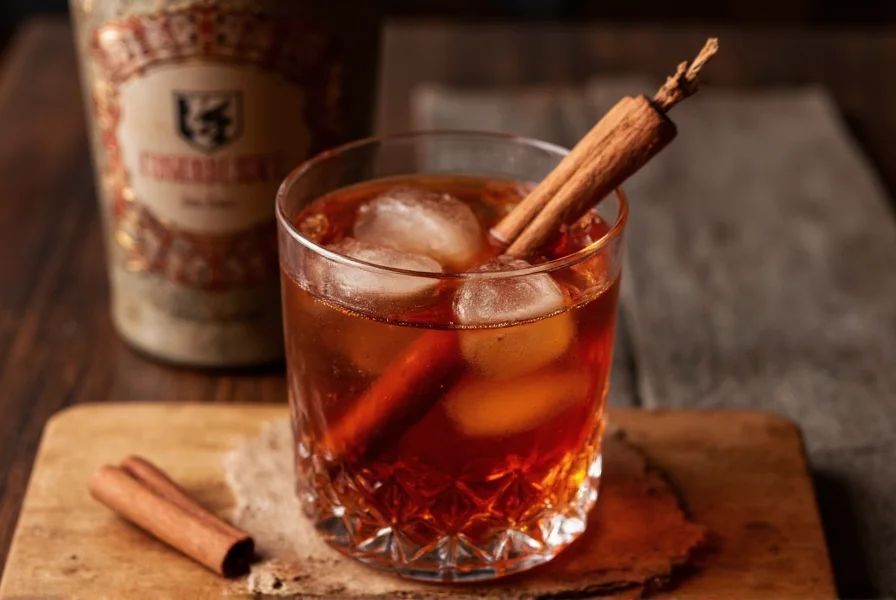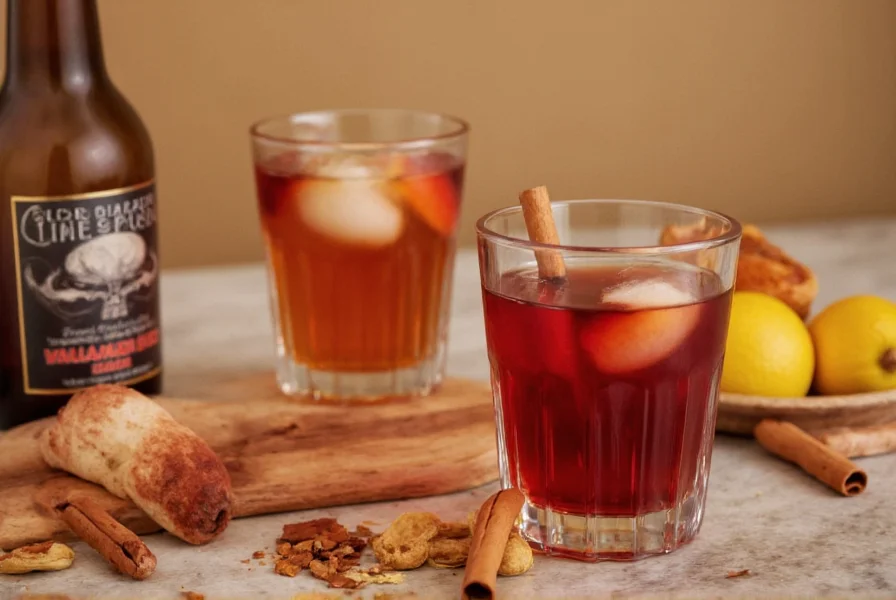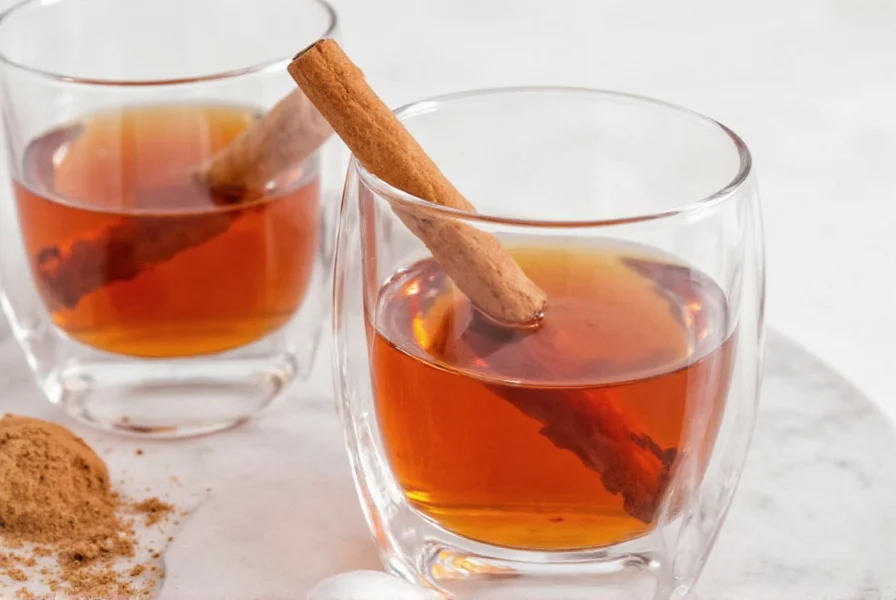Whether you're looking to recreate popular commercial products like Fireball Cinnamon Whisky or craft your own unique homemade version, understanding the fundamentals of cinnamon-infused spirits opens up a world of flavor possibilities. This guide explores the essentials of cinnamon booze, from traditional preparation methods to creative applications.
Understanding Cinnamon-Infused Spirits
Cinnamon booze encompasses both commercially produced cinnamon-flavored liquors and homemade infusions. The key difference lies in production methods and additional ingredients. Commercial varieties often contain added sugars and flavorings, while homemade versions typically rely solely on cinnamon and a base spirit.
The most common base spirits for cinnamon infusion include:
- Vodka (neutral flavor allows cinnamon to shine)
- Whiskey (adds complementary caramel notes)
- Rum (creates a tropical-spicy profile)
- Everclear (high-proof for maximum extraction)
A Brief History of Spiced Spirits
Infusing spirits with spices like cinnamon dates back centuries. Early distillers used available spices both for flavor and perceived medicinal properties. In many cultures, spiced liquors were traditionally consumed during colder months for their warming qualities.
Modern commercial cinnamon liquors gained popularity in the late 20th century, with Fireball Cinnamon Whisky becoming a cultural phenomenon in the 2010s. However, the practice of creating homemade cinnamon-infused spirits remains popular among cocktail enthusiasts and home bartenders seeking customization.
Homemade Cinnamon Booze: A Simple Guide
Creating your own cinnamon booze offers complete control over flavor intensity and ingredients. This homemade cinnamon liqueur recipe produces a versatile spirit ready in as little as three days:
| Ingredient | Quantity | Notes |
|---|---|---|
| Base spirit (vodka, whiskey, or rum) | 750ml | 80-100 proof works best |
| Cinnamon sticks (Ceylon preferred) | 5-7 | Avoid powder for cleaner infusion |
| Vanilla bean (optional) | 1 | Adds complexity |
| Simple syrup (optional) | ¼ cup | For sweeter profile |
Step-by-Step Preparation
- Lightly crush cinnamon sticks to increase surface area
- Add to clean glass jar with base spirit
- Seal tightly and store in cool, dark place
- Shake gently once daily
- Taste after 3 days (up to 14 days for stronger flavor)
- Strain through coffee filter to remove sediment
- Add simple syrup if desired and shake to combine

Flavor Variations and Customization
The beauty of how to make cinnamon whiskey or other cinnamon spirits at home lies in customization. Consider these variations:
- Spiced version: Add cloves, star anise, or nutmeg for complexity
- Citrus twist: Include orange peel for bright notes
- Chili kick: Add dried chili peppers for heat
- Coffee blend: Infuse with coffee beans for depth
When experimenting with cinnamon vodka infusion method, remember that different cinnamon varieties yield distinct flavors. Ceylon cinnamon ("true" cinnamon) offers a delicate, sweet profile, while Cassia cinnamon provides a more robust, traditional "cinnamon roll" flavor.
Culinary Applications Beyond Cocktails
Cinnamon booze serves multiple purposes in the kitchen:
- Enhance baked goods (add 1-2 tablespoons to cake batters)
- Create glazes for donuts or pastries
- Flavor whipped cream for desserts
- Add depth to chocolate sauces
- Boost fruit compotes and sauces
For those seeking a cinnamon fireball alternative recipe, try combining homemade cinnamon vodka with a touch of honey syrup and a drop of food-grade cinnamon oil for that familiar fiery finish.
Popular Cinnamon Booze Cocktails
From simple highballs to sophisticated craft cocktails, cinnamon-infused spirits shine in numerous drinks:
Cinnamon Maple Old Fashioned
- 2 oz cinnamon whiskey
- ¼ oz pure maple syrup
- 2 dashes Angostura bitters
- Orange twist for garnish
Spiced Cinnamon Mule
- 1.5 oz cinnamon vodka
- 0.5 oz fresh lime juice
- 4 oz ginger beer
- Lime wedge for garnish

Storage and Shelf Life Considerations
Properly stored, homemade cinnamon moonshine preparation can last indefinitely due to the preservative nature of alcohol. However, for optimal flavor:
- Store in airtight glass container away from light
- Consume within 6-12 months for best quality
- Refrigeration not required but can extend freshness
- Strain thoroughly to prevent sediment buildup
Commercial cinnamon liquors typically maintain quality for 1-2 years after opening. Always check for changes in color, clarity, or off-odors before consumption.
Responsible Enjoyment Guidelines
While exploring uses for cinnamon infused alcohol, remember these safety considerations:
- Alcohol content remains similar to base spirit
- Sugary commercial varieties contain significant calories
- Never consume if experiencing adverse reactions
- Store safely away from children and heat sources
- Always drink responsibly and never operate vehicles after consumption
Conclusion
Cinnamon booze represents a versatile category of spirits that bridges traditional flavoring techniques with modern cocktail culture. Whether you're crafting your own homemade cinnamon liqueur recipe or exploring commercial options, understanding the fundamentals of cinnamon infusion empowers you to create memorable drinking experiences. The best cinnamon for alcohol infusion ultimately depends on your personal taste preferences and intended applications.
How long does homemade cinnamon booze last?
Properly strained and stored in an airtight container away from light, homemade cinnamon booze maintains optimal flavor for 6-12 months. The high alcohol content acts as a preservative, making it technically safe indefinitely, though flavor quality gradually diminishes over time.
What's the difference between Ceylon and Cassia cinnamon for infusions?
Ceylon cinnamon ("true" cinnamon) offers a delicate, sweet flavor with citrus notes, while Cassia cinnamon provides a stronger, more familiar "cinnamon roll" taste. Ceylon contains less coumarin (a compound potentially harmful in large quantities), making it preferable for frequent consumption.
Can I use cinnamon powder instead of sticks?
While possible, cinnamon sticks are strongly recommended over powder. Powder creates cloudy sediment that's difficult to strain completely. If using powder, expect a stronger initial flavor but potential texture issues. Use approximately 1 tablespoon of powder per 750ml of spirit as a starting point.
Why does my homemade cinnamon booze taste bitter?
Bitterness typically results from over-infusion (leaving cinnamon in too long) or using low-quality cinnamon. Most spirits develop optimal cinnamon flavor within 3-7 days. If bitterness occurs, try adding a small amount of simple syrup to balance the flavor profile.
What's the ideal alcohol proof for cinnamon infusion?
80-100 proof (40-50% ABV) spirits work best for cinnamon infusion. Higher proofs extract flavors more efficiently but may require longer resting after straining to mellow. Lower proofs may not extract flavors sufficiently. Vodka, whiskey, and rum in this range provide excellent results for cinnamon flavored spirits comparison experiments.











 浙公网安备
33010002000092号
浙公网安备
33010002000092号 浙B2-20120091-4
浙B2-20120091-4